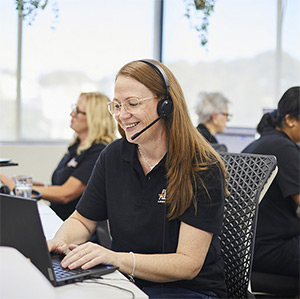Choosing the right school for your autistic child is one of the biggest decisions you’ll make as a parent or carer.
You want a school where your child feels safe, included, and supported—not only with learning but also with friendships, routines, and wellbeing.
This guide explains the different school options in Australia, how to explore what’s available, and how to decide which environment is the best fit for your child.
1. Mainstream (Public or Private) Schools
Mainstream schools are the same schools most children in your community attend.
In Australia, your child has the right to attend their local public school, regardless of disability.
Supports in mainstream schools may include:
-
Learning support staff (like teacher’s aides or support officers)
-
Individual Learning Plans (ILPs) with tailored goals
-
Classroom adjustments (visual supports, quiet spaces, flexible time for tasks)
-
Access to allied health supports (e.g. speech or occupational therapy, depending on state/territory)
Why parents choose mainstream schools:
-
Encourages inclusion and peer learning
-
Builds connections in the local community
-
Gives children the chance to learn alongside siblings or neighbours
Keep in mind: the level of support can vary a lot between schools.
2. Autism or Special Education Units within Mainstream Schools
Some mainstream schools have specialised autism or disability support units.
These classes offer:
-
Smaller class sizes
-
Teachers with extra training in autism and disability education
-
Tailored learning programs
-
Opportunities to join mainstream activities when appropriate
This option can give your child the “best of both worlds” option—targeted support in a smaller class while still being part of the wider school community.
3. Specialist Schools
Specialist schools (also called Schools for Specific Purposes – SSPs) cater only for students with disability.
Parents may choose this option if their child’s needs can’t be met in a mainstream setting, even with adjustments
Specialist schools usually provide:
-
Higher staff-to-student ratios
-
Specialist teachers and therapists on site
-
A strong focus on life skills, communication, and behaviour support
-
Structured routines that can reduce anxiety
Some families find specialist schools provide the right expertise and support, while others feel they are too separate from community life.
4. How to find a school in Australia
We can’t provide a comprehensive, up-to-date list of every school in Australia that provides support for children with disability, because it’s too large, constantly changing, and each state/territory manages its own education system.
The best way to start is by contacting local schools directly to ask what support they provide.
Where to Search for Public Schools in Your Area
Here are the official directories for up-to-date listings:
- NSW: School Finder
- VIC: Find a School
- QLD: School Directory
- SA: Department for Education School Directory
- WA: Schools Online
- TAS: Department of Education Schools
- ACT: Education Directorate Schools
- NT: Education NT Schools
There are also lists of specialist schools and public schools with disability support units available through state websites and the National Education Directory.
Public Schools with Disability Units
We’ve collected information about schools that specifically have support here. This is not exclusive and may change (as explained above).
- National Education Directory – Specialist Schools in NSW
- Private and Independent schools that specifically cater for students with special needs.
- Public schools in Victoria with disability support units
- Public schools in South Australia with disability support units
- Find out more + how to find and enrol in an SSP in NSW
Specialist Schools
- List of Specialist Schools in QLD
- List of Specialist Schools in NSW
- List of Specialist Schools in VIC
- List of Specialist Schools in WA
- List of Specialist Schools in TAS
- List of Specialist Schools in ACT
- List of Specialist Schools in SA
- List of Specialist Schools in NT
How to Decide What’s Best for Your Child
Every autistic child is unique—so there’s no single “right” school choice. Here are some steps to guide you
- Understand your child’s needs and strengths
-
Do they cope well in large groups, or need smaller, structured settings?
-
Do they thrive on routine, or are they more flexible?
-
What support do they need with communication, sensory regulation, or social skills?
-
- Visit schools in person
-
Observe how teachers interact with students
-
Ask about autism-specific supports and ILPs
-
Check the sensory environment (quiet spaces, routines, lighting, playgrounds)
-
- Talk to other parents
-
Parent communities often give real insights into how supportive a school truly is, not just on paper.
-
- Work with your child’s support team
-
Ask your child’s allied health professionals (e.g. OT, psychologist, speech therapist) what school environment may best suit their needs.
-
- Keep the decision flexible
- Remember, choosing a school isn’t forever. Some children start in mainstream and later move to a support class or specialist school, while others transition the other way as their confidence and skills grow.
Questions to ask when choosing a school
We’ve created a School Checklist for Parents of Autistic Children that includes key questions about:
-
Inclusion and school culture
-
Staffing and support services
-
Learning plans and progress tracking
-
Sensory supports and adjustments
-
Communication with families
-
Social inclusion and bullying policies
-
Transitions and flexibility
Support for Parents
Raising Children Network have a wide range of good quality resources to support parents.
Raising Children Network – School for Children with Disability
How does the NDIS Fits In?
The NDIS doesn’t fund school education directly, but it can fund supports that help your child succeed at school, such as:
-
Speech therapy to build communication skills
-
Occupational therapy to support sensory needs and motor skills
-
Behaviour support to manage challenges in the classroom
-
Social skills programs to improve friendships and participation
These therapies are delivered outside school hours but can make a big difference to your child’s learning journey.
Choosing a school for your autistic child is about finding the right fit for their strengths, needs, and personality.
The best school is one where your child feels safe, understood, and valued—a place where they can learn, make friends, and grow with confidence




